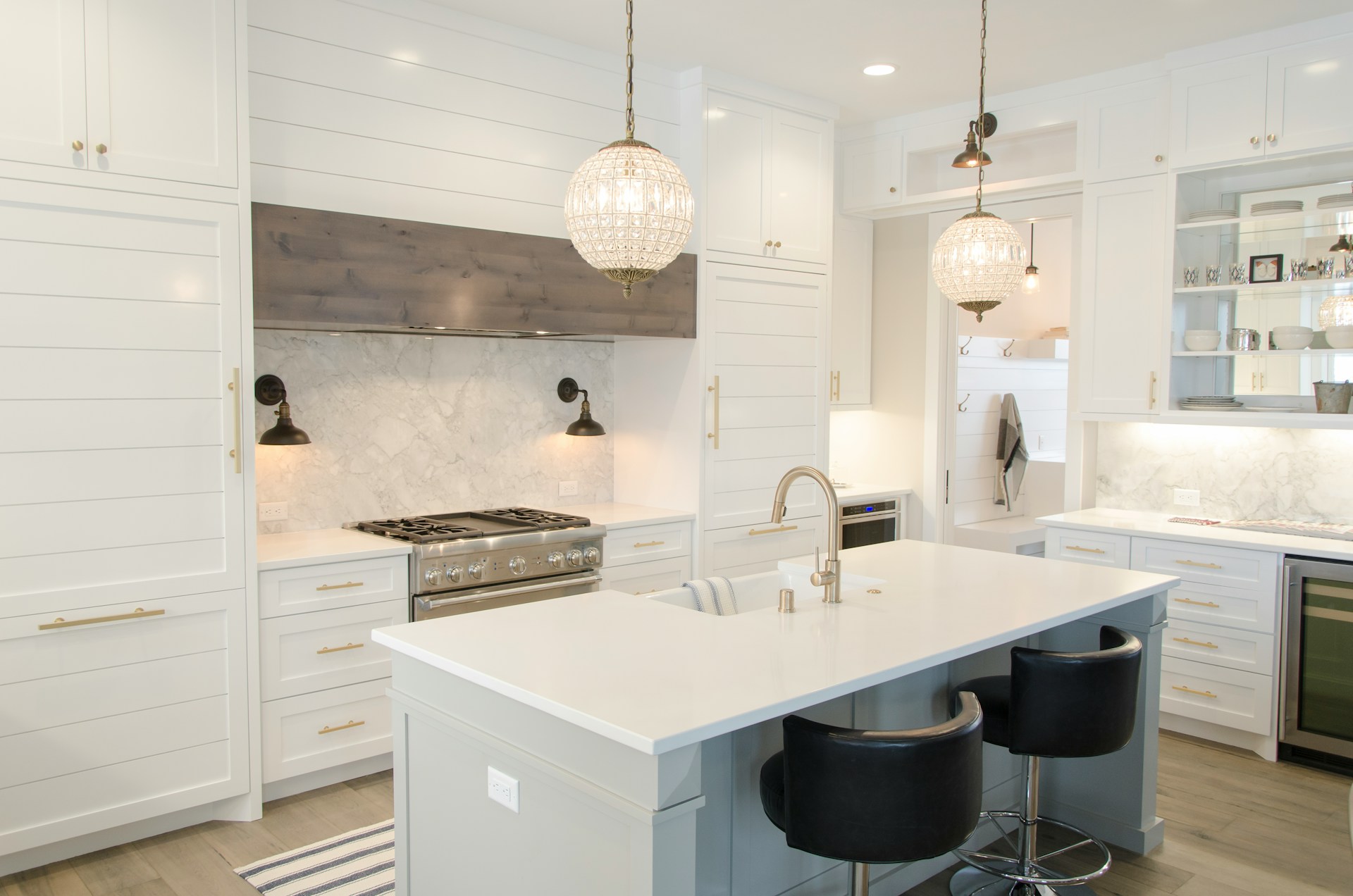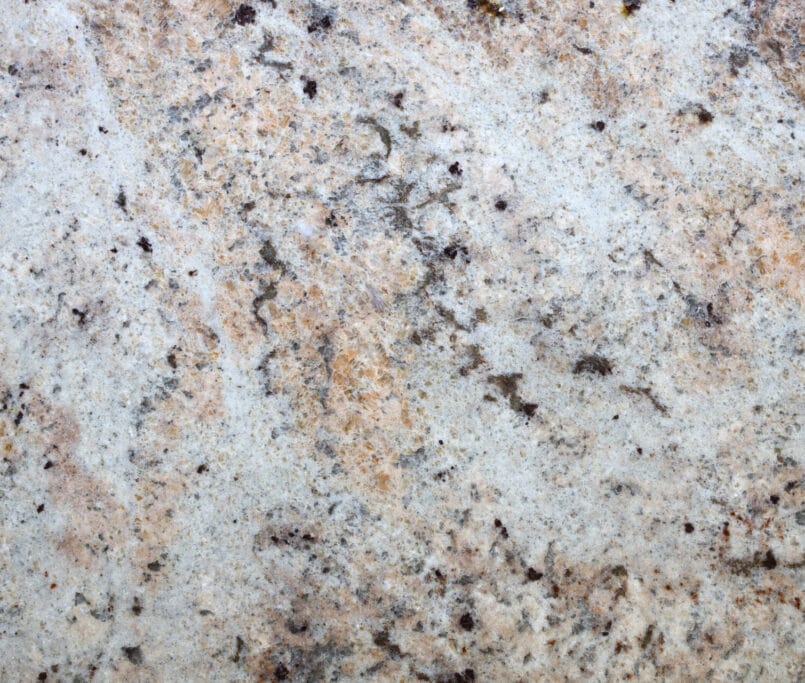The Pros and Cons of Quartz Countertops: What You Need to Know
Quartz countertops have become a popular choice for homeowners looking to update their kitchens and bathrooms. As an engineered stone, they offer a wide variety of colors and patterns, and are known for their durability and low maintenance. However, as with any countertop material, there are both advantages and disadvantages to consider before making your decision. At Flooring Land, we’re here to help guide you through the pros and cons of quartz countertops, so you can determine if this material is the right fit for your home.
Pros of Quartz Countertops
1. Highly Resistant to Stains One of the major advantages of quartz countertops is their highly resistant to stains. Unlike natural stone countertops like granite or marble, quartz countertops are non-porous, meaning liquids and oils are less likely to seep into the surface and cause stains. This makes quartz a great option for kitchen countertops, where spills and splatters are common. For homeowners who value a clean, easy-to-maintain surface, quartz countertops are a top contender.
2. Durability Quartz is one of the most durable countertop materials available. It’s resistant to scratches, cracks, and chips, thanks to its engineered stone composition. The surface is made by combining natural quartz crystals with resin and polymer, which makes it incredibly hard and long-lasting. While it’s not completely indestructible, quartz countertops are designed to stand up to daily wear and tear, which is perfect for busy kitchens and bathrooms.
3. Heat Resistant Another benefit of quartz countertops is their heat resistance. While quartz countertops can handle moderate heat, it’s still important to avoid placing hot pans directly on the surface, as extreme heat may cause damage over time. That said, compared to some natural stone countertops like granite or marble, quartz is more heat-resistant, though it’s still recommended to use trivets or hot pads to protect the surface.
4. Variety of Colors and Patterns Quartz countertops offer an extensive range of colors and patterns, from sleek solid colors to intricate veining and speckled designs. Whether you prefer a contemporary or traditional look, there is a quartz countertop to match your aesthetic. This versatility makes quartz a great option for homeowners looking to personalize their kitchen or bathroom with unique countertop material. The ability to choose from a variety of options also ensures you can find something that works within your specific design scheme.
5. Low Maintenance Quartz is incredibly easy to maintain. Unlike natural stone countertops, which often require sealing to prevent stains, quartz countertops do not require sealing. They are easy to wipe down with mild soap and water, making daily cleaning quick and hassle-free. For homeowners who want a beautiful and low-maintenance surface, quartz countertops fit the bill.
6. Eco-Friendly Option Since quartz countertops are made from engineered stone, they are often more eco-friendly than natural stone options. Many quartz manufacturers use recycled materials in their production process, which helps reduce environmental impact. This is an important factor for homeowners who prioritize sustainability when choosing materials for their home renovations.
Cons of Quartz Countertops
1. Requires a Skilled Professional for Installation While quartz countertops offer many benefits, their installation requires a skilled professional. Quartz is heavy and can be difficult to handle without proper tools and expertise. Unlike a DIY project, attempting to install quartz countertops on your own can lead to costly mistakes. A professional quartz countertop installation ensures the material is properly cut, shaped, and fitted to your space. Proper installation also helps avoid potential issues down the line, such as improper sealing or alignment.
2. Prone to Chipping While quartz is durable, it is not immune to damage. The surface can chip if heavy objects are dropped on it or if the countertop is subjected to impact in high-traffic areas. Though quartz is harder than many other countertop materials, like granite or marble, it’s still possible for it to chip or crack if it’s not treated with care. It’s especially important to be mindful when using heavy cookware or dropping items on your quartz countertops.
3. Heat Damage While quartz countertops are heat resistant, they are not completely immune to heat damage. Exposure to extremely high temperatures can cause the resin in the engineered stone to melt or discolor. For this reason, it’s essential to use trivets or hot pads to protect the surface from hot pans, especially in the kitchen where heat is frequently used. While quartz is heat resistant, it’s not entirely heatproof, so it’s important to exercise caution.
4. Expensive Compared to Other Materials Quartz countertops tend to be more expensive than some other materials, such as laminate or solid surface countertops. While the cost of quartz countertops can vary depending on the brand and style, they generally come with a higher price tag than some natural stone options, including granite. However, many homeowners find the investment worthwhile due to the durability, low maintenance, and aesthetic appeal of quartz countertops.
5. Not 100% Natural While quartz is often touted as a natural stone countertop material, it’s technically an engineered stone. This means that quartz countertops are not made entirely from natural materials like granite or marble. Instead, they are created by blending natural quartz crystals with resins and polymers, which can make some homeowners feel that quartz lacks the authenticity and natural beauty of other stone options. However, for those who prioritize durability and ease of maintenance over natural authenticity, this may not be a major concern.
6. Limited Repair Options Unlike natural stone countertops, which can often be repaired with simple resurfacing techniques, quartz countertops are more difficult to repair if they become damaged. Chipped quartz countertops may require professional repairs or even complete replacement of the affected area. This is something to consider before making the decision to invest in quartz, as repairs may be more costly and less effective than with natural stone countertops.
Are Quartz Countertops Worth It?
When considering whether quartz countertops are worth the investment, it’s important to weigh the advantages and disadvantages of the material. Quartz countertops provide an appealing balance of beauty, durability, and low maintenance, making them a popular choice for homeowners looking for a long-lasting solution for their kitchen and bathroom surfaces. The variety of colors and patterns available allows for flexibility in design, and the material’s resistance to stains and scratches makes it an attractive option for busy households.
However, it’s also important to keep in mind that quartz countertops require skilled professional installation, may be prone to chipping, and can be more expensive than some other countertop materials. Whether quartz is the right choice for you will depend on your priorities, design preferences, and budget.
At Flooring Land, we understand that choosing the right countertop material is an important decision. Whether you’re remodeling your kitchen or updating your bathroom, we’re here to help you explore all your options. Visit our quartz countertops store to learn more about our selection of high-quality quartz countertops and speak with our team about quartz countertop installation.






